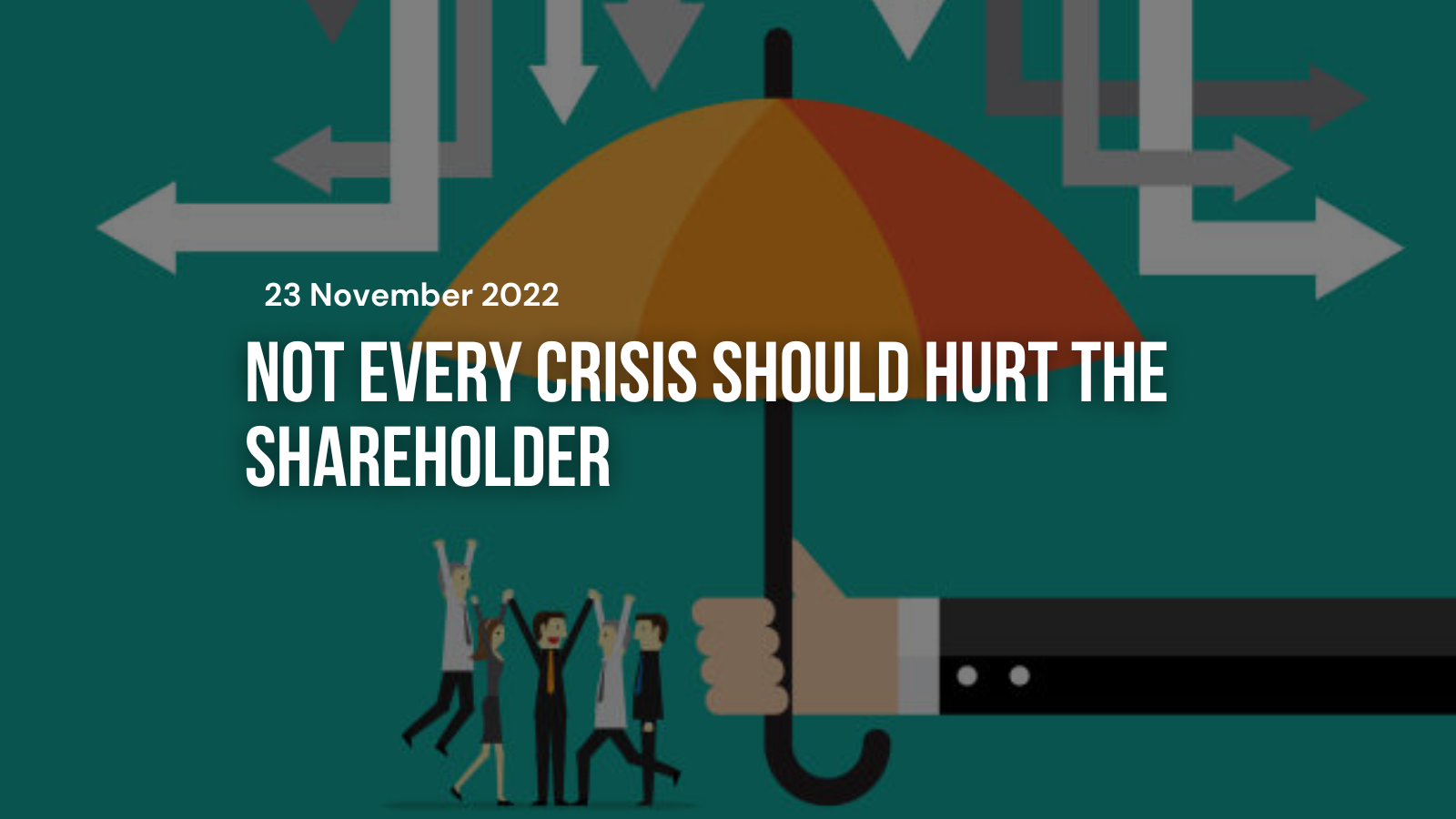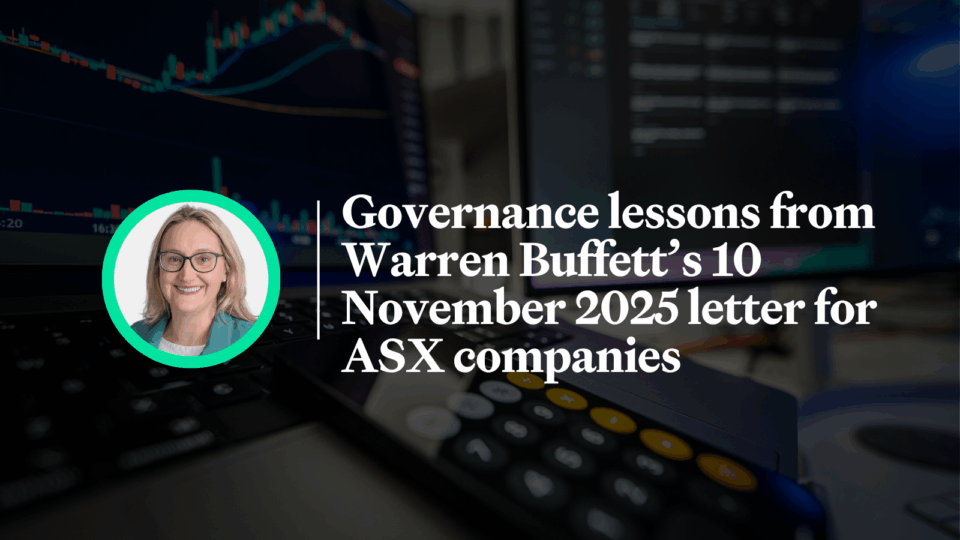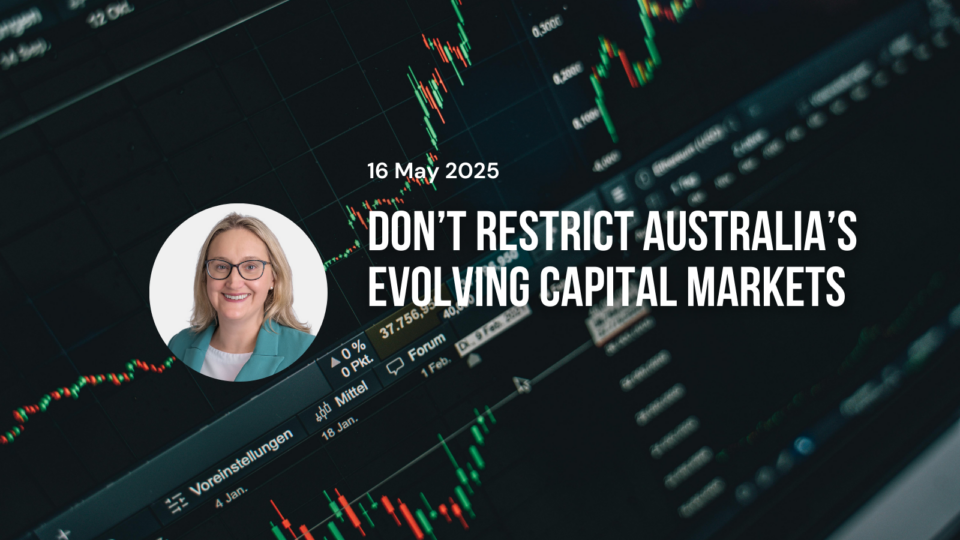
When a company’s pipeline bursts or their customer database gets hacked, or the CEO has been exposed in the media for improper dealings, it can cost the shareholder a lot of money. During the 2010 deep sea oil-well leak, BP was held responsible and in only six months saw their share price drop by 58%, wiping US$108 billion dollars of the company’s market value.
A lot of this can be avoided, and it can even be planned for.
Crises affect companies every day. Often they are minor, but just as often they can lead to significant problems that do not go away for a long time. When a crisis is dealt with in a bad way, it will lead to a reputational crisis, as it did for BP. Even when a crisis is dealt with in a mediocre way, it will often lead to a reputational crisis because the news media loves sensationalism to get more viewers and will find all questionable issues to continue running a story. Only when a crisis is handled well, the media will find a more sensational news story will the crisis disappear quickly.
The Optus data hack was a crisis, and because it was handled badly, it has turned into a reputational crisis. In less than a month, commentators from all directions have come out and admonished Optus for handling things badly. Optus could now be anticipating fines for anything and everything as regulators have been appointed to investigate the company for its role in the problem, and how it handled it. Customers have run for the hills and lost trust not just in how the company handles their data, but also in the ability of Optus executives to handle a problem.
Reputational crises can come from just about any direction at any time. Especially since social media is now regularly a source for traditional news media, it does not take long for a reputational crisis to erupt and become chronic. Typically a crisis erupts when a perceived wrong doing has occurred and the company is held to account. How it is handled will determine if the problem goes away, or blows up into a reputational crisis. In the Optus data hack, it was handled poorly and typically as a reputational crisis evolves, the company’s ethics and governance become an issue and discussed in the mainstream media. Often politicians and the occasional bureaucrat will weigh in with commentary to the mainstream media, affecting customer loyalty, regulations, supply lines, worker’s morale, resale, and always reducing company profit forecasts. In reputational crises the financial analysts will calculate the anticipated financial fall out quickly and adjust the value of the company’s shares in the market place.
It is possible to avoid a problem turning into a crisis, and more possible to avoid a crisis turning into a reputational crisis. Some very basic crisis planning analysis and strategies are amongst the most effective means of protecting the company and its shareholders. Only few companies view reputational crisis planning as an investment similar to insurance.
“When things go wrong, don’t go with them” Elvis Presley
The financial impacts of reputational crises have now become so predictable that some global insurance companies offer policies not just for corporate reputational crisis insurance but also to specific brand insurance policies. Whereas all companies without fail will take out a fire insurance policy and often insurance for Information Technology issues, most corporations do not spend a cent on avoiding reputational crises. Most reputational crisis communication planning includes stakeholder mapping already used by corporations.
A very effective strategy any company can use is sentiment analysis which monitors social media and news media, checking the sentiment of stakeholders. These analyses are a cost effective method of finding issues before they become a crisis, and are best reviewed by an objective professional third party to identify and analyse for reputational crisis risks. If Optus had used sentiment analysis effectively as an early warning system it would have been obvious they needed to change their media statements and strategy immediately.
BP pumped oil for the best part of the last century, yet they did not stop their shares losing 58% in value. It is worth checking that even your most reputable and profitable company has reputational crisis planning.
—
Tom Schermer, Communication and Stakeholder Consultant






